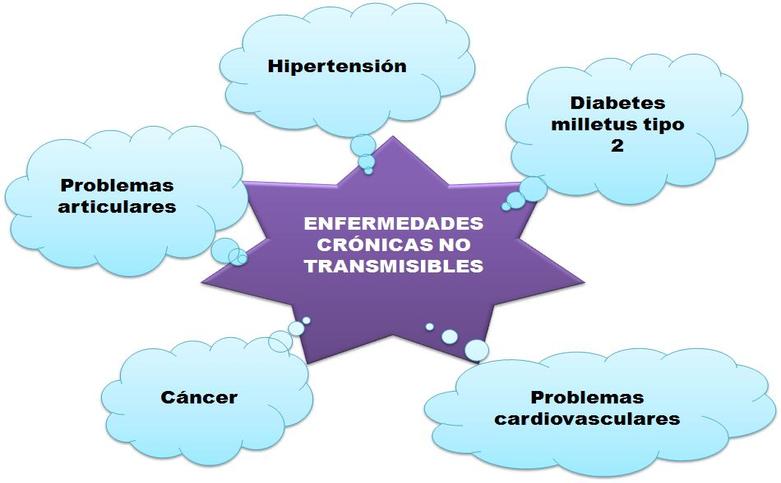Finding Strength In Challenges: A Practical Guide To Resilience

Table of Contents
Understanding Resilience: What it is and Why it Matters
Defining Resilience
Resilience is the ability to adapt to adversity, trauma, tragedy, threats, or significant sources of stress—such as family and relationship problems, serious health problems, or workplace and financial stressors. It's not about being unaffected by these challenges; it's about bouncing back and continuing to live a fulfilling life. Resilient individuals demonstrate the capacity to cope with hardship, learn from difficult experiences, and emerge stronger and more adaptable. This process involves a complex interplay of psychological, social, and biological factors. Understanding resilience is the first step towards building it.
The Benefits of Resilience
The positive impacts of resilience are far-reaching and profoundly affect various aspects of our lives. Developing strong resilience contributes to:
- Reduced stress: Effective coping mechanisms lessen the impact of stressors on your mental and physical health.
- Improved coping mechanisms: Resilience equips you with the tools to manage challenges more effectively.
- Stronger relationships: Resilience allows you to navigate conflicts and maintain healthy connections.
- Increased self-esteem: Successfully overcoming challenges boosts self-confidence and self-worth.
- Better physical health: Reduced stress and improved coping mechanisms contribute to better overall physical well-being.
- Greater life satisfaction: Resilience leads to a more fulfilling and meaningful life despite facing setbacks.
Misconceptions about Resilience
Several myths surround resilience. It's crucial to dispel these misconceptions:
- Myth 1: Resilience is an innate trait. While some individuals may seem naturally more resilient, it's a skill that can be learned and developed by anyone.
- Myth 2: Resilient people don't experience negative emotions. Resilience doesn't mean avoiding negative feelings; it's about acknowledging, processing, and managing them effectively.
- Myth 3: Resilience means never giving up. Sometimes, giving up on an unattainable goal is a resilient act, allowing you to focus your energy on more attainable objectives.
Practical Strategies for Building Resilience
Cultivating a Positive Mindset
A positive mindset is a cornerstone of resilience. This involves:
- Practice mindfulness: Mindfulness techniques help you stay grounded in the present moment, reducing the power of overwhelming thoughts and anxieties.
- Challenge negative thoughts: Identify and challenge negative self-talk, replacing it with more realistic and positive affirmations.
- Focus on strengths: Recognize and leverage your personal strengths to overcome challenges.
- Keep a gratitude journal: Regularly recording things you're grateful for shifts your focus towards the positive aspects of your life.
Building Strong Social Connections
Social support is vital in navigating difficult times. Nurture your relationships by:
- Nurturing existing relationships: Invest time and effort in maintaining strong connections with family and friends.
- Building new connections: Engage in activities that allow you to meet new people and expand your social circle.
- Seeking support from family, friends, or therapists: Don't hesitate to reach out for help when needed.
- Joining support groups: Connecting with others facing similar challenges can provide valuable support and understanding.
Developing Effective Coping Mechanisms
Healthy coping mechanisms are essential for managing stress and difficult emotions. Consider:
- Exercise regularly: Physical activity releases endorphins, which have mood-boosting effects.
- Practice relaxation techniques: Meditation, deep breathing, and yoga can help reduce stress and anxiety.
- Engage in hobbies: Pursuing enjoyable activities provides a healthy distraction and boosts your mood.
- Seek professional help when needed: Therapy or counseling can provide valuable support and guidance in developing coping strategies.
Embracing Self-Care
Prioritizing self-care is paramount for building resilience. This includes:
- Prioritize sleep: Aim for 7-9 hours of quality sleep each night.
- Eat a healthy diet: Nourishing your body with healthy foods provides the energy and nutrients you need to cope with stress.
- Engage in regular physical activity: Exercise reduces stress and improves mood.
- Set boundaries: Learn to say "no" to requests that overwhelm you or compromise your well-being.
Resilience in Action: Overcoming Specific Challenges
Navigating Workplace Stress
Workplace stress can significantly impact well-being. Resilience strategies include effective time management, setting clear boundaries, seeking mentorship, and learning to delegate tasks. Learning to address conflict constructively and advocating for yourself are key.
Coping with Relationship Difficulties
Relationship challenges are common. Building resilience in relationships requires open communication, active listening, conflict resolution skills, and seeking couples counseling when necessary. Learning to forgive and compromise are essential.
Managing Grief and Loss
Grief is a deeply personal experience. Resilience during grief involves seeking support from loved ones, allowing yourself to grieve, and engaging in self-care practices. Professional grief counseling can be invaluable.
Conclusion
Building resilience is a journey, not a destination. By understanding what resilience is, cultivating a positive mindset, building strong support systems, and developing healthy coping mechanisms, you can equip yourself to navigate life's inevitable challenges with strength and grace. Remember, developing resilience is a process of continuous growth and learning. Start incorporating these strategies today and discover the power of resilience within yourself. Embrace the challenges, and watch your inner strength blossom. Learn to build your resilience and unlock your full potential. Begin your resilience journey now!

Featured Posts
-
 Gangsta Granny Comparing The Book To The Stage Adaptation
May 21, 2025
Gangsta Granny Comparing The Book To The Stage Adaptation
May 21, 2025 -
 Problemen Met Online Betalen Bij Abn Amro Opslag
May 21, 2025
Problemen Met Online Betalen Bij Abn Amro Opslag
May 21, 2025 -
 Jeremie Frimpong Transfer Agreement Reached But Contact With Club Pending
May 21, 2025
Jeremie Frimpong Transfer Agreement Reached But Contact With Club Pending
May 21, 2025 -
 Ex Tory Councillors Wifes Tweet Appeal Await The Verdict On Racial Hatred Charges
May 21, 2025
Ex Tory Councillors Wifes Tweet Appeal Await The Verdict On Racial Hatred Charges
May 21, 2025 -
 Mission Patrimoine 2025 En Bretagne Focus Sur Les Sites De Plouzane Et Clisson
May 21, 2025
Mission Patrimoine 2025 En Bretagne Focus Sur Les Sites De Plouzane Et Clisson
May 21, 2025
Latest Posts
-
 Swiss Foreign Minister Cassis Condemns Pahalgam Terror Attack
May 22, 2025
Swiss Foreign Minister Cassis Condemns Pahalgam Terror Attack
May 22, 2025 -
 Superalimentos Por Que Este Supera Al Arandano En Beneficios Para La Salud
May 22, 2025
Superalimentos Por Que Este Supera Al Arandano En Beneficios Para La Salud
May 22, 2025 -
 Adios Enfermedades Cronicas El Poder Del Superalimento Para Una Vida Larga Y Saludable
May 22, 2025
Adios Enfermedades Cronicas El Poder Del Superalimento Para Una Vida Larga Y Saludable
May 22, 2025 -
 El Superalimento Que Combate Enfermedades Cronicas Y Promueve La Longevidad
May 22, 2025
El Superalimento Que Combate Enfermedades Cronicas Y Promueve La Longevidad
May 22, 2025 -
 Adios Enfermedades Cronicas El Superalimento Para Una Vida Larga Y Saludable
May 22, 2025
Adios Enfermedades Cronicas El Superalimento Para Una Vida Larga Y Saludable
May 22, 2025
